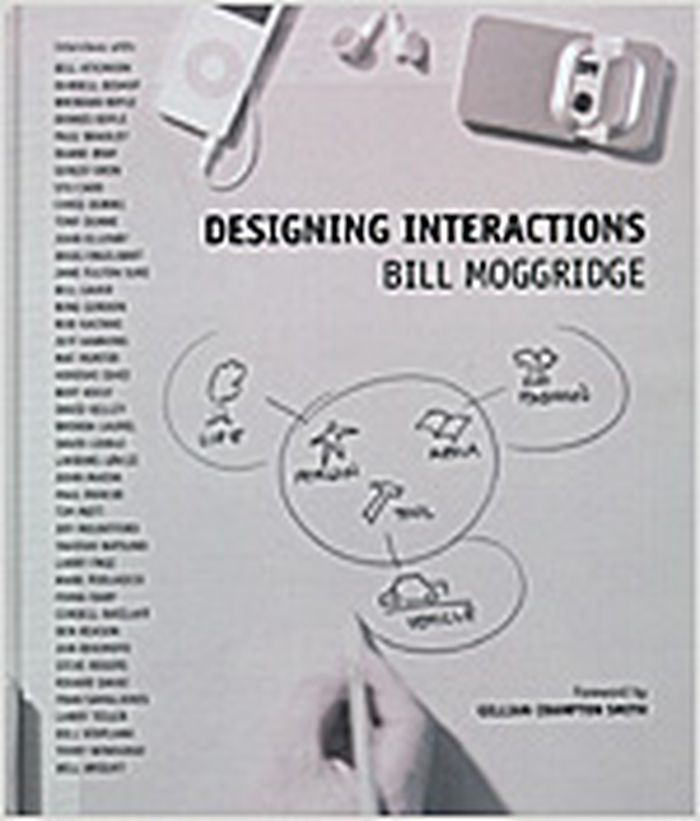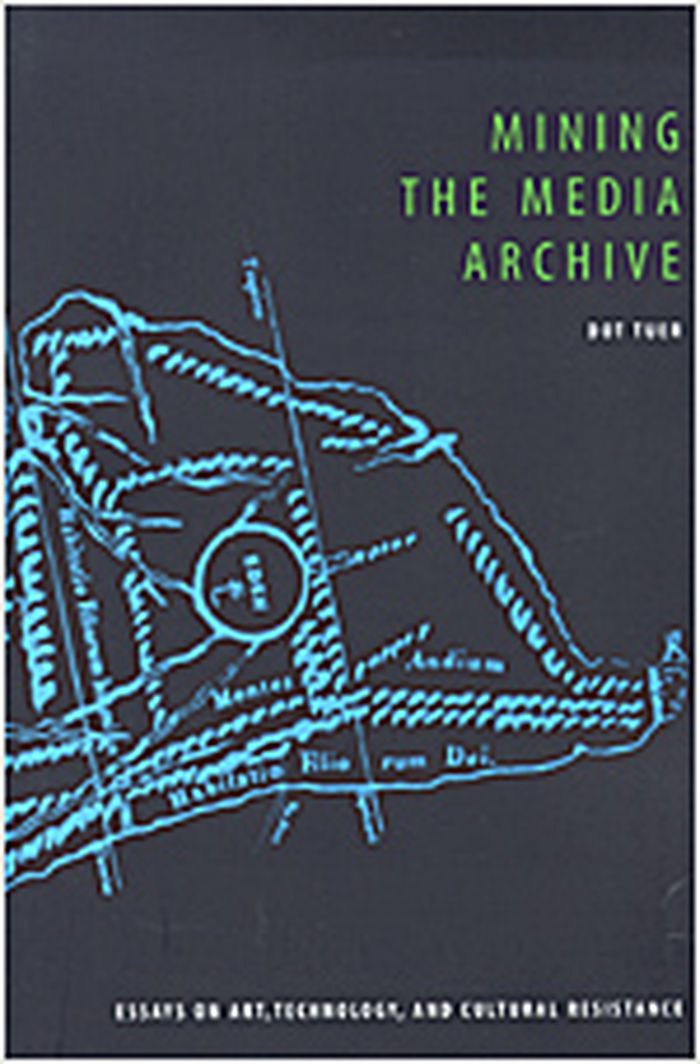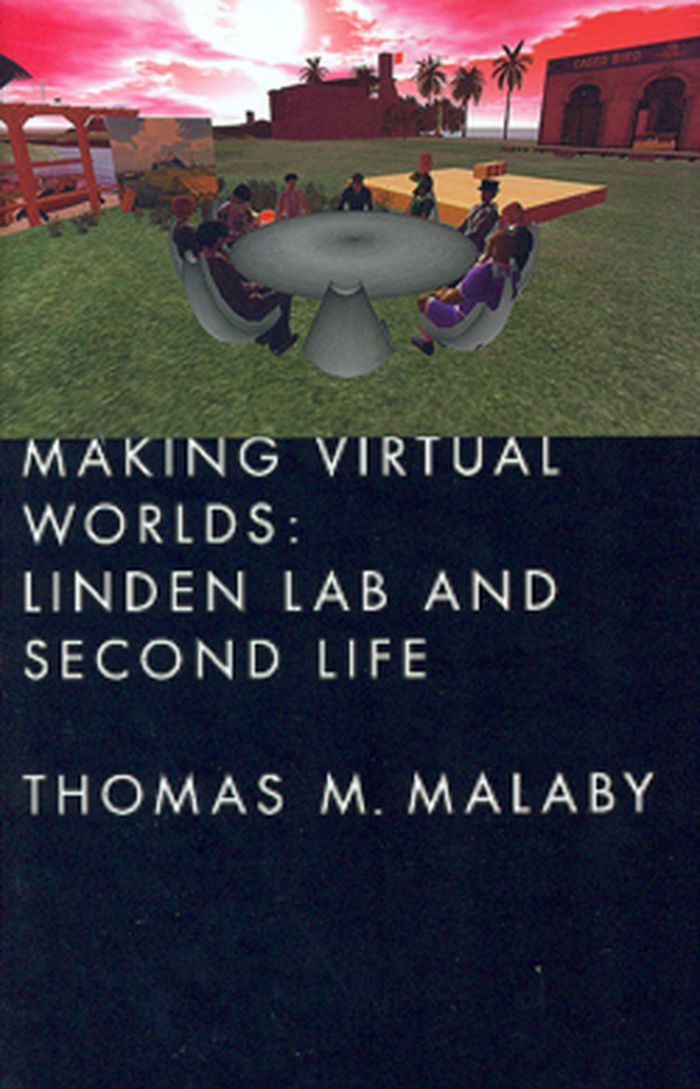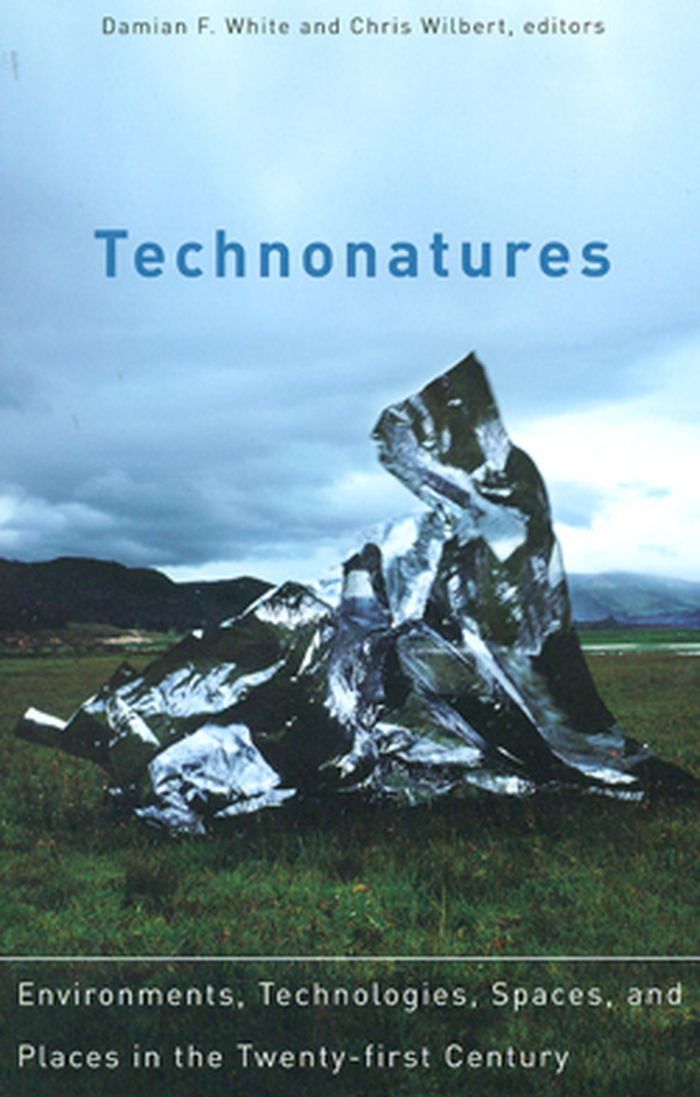Designing interactions
$47.95
(disponible sur commande)
Résumé:
In "Designing Interactions" Bill Moggridge and his interviewees discuss such questions as why a personal computer has a window in a desktop, what made Palm's handheld organizers so successful, what turns a game into a hobby, why Google is the search engine of choice, and why 30 million people in Japan choose the i-mode service for their cell phones. Moggridge tells the(...)
Épistémologie et réseau
octobre 2006, Cambridge, Mass.
Designing interactions
Actions:
Prix:
$47.95
(disponible sur commande)
Résumé:
In "Designing Interactions" Bill Moggridge and his interviewees discuss such questions as why a personal computer has a window in a desktop, what made Palm's handheld organizers so successful, what turns a game into a hobby, why Google is the search engine of choice, and why 30 million people in Japan choose the i-mode service for their cell phones. Moggridge tells the story of his own design process and explains the focus on people and prototypes that has been successful at IDEO - how the needs and desires of people can inspire innovative designs and how prototyping methods are evolving for the design of digital technology.
Épistémologie et réseau
$21.95
(disponible sur commande)
Résumé:
Ranging from monographs on new-media artists, to a history of Canada's most controversial artist-run center, the CEAC, to testimonial writing on cultural politics and post-colonialism in Canada and Argentina, Tuer's writing address global media and local remembrance through a bland of storytelling, archival research, and cultural analysis.
Mining the media archive : essays on art, technology, and culture resistance
Actions:
Prix:
$21.95
(disponible sur commande)
Résumé:
Ranging from monographs on new-media artists, to a history of Canada's most controversial artist-run center, the CEAC, to testimonial writing on cultural politics and post-colonialism in Canada and Argentina, Tuer's writing address global media and local remembrance through a bland of storytelling, archival research, and cultural analysis.
Épistémologie et réseau
$34.00
(disponible sur commande)
Résumé:
The open terrain of new media is closing fast. Market concentration, legal consolidation and tightening governmental control have effectively ended the myth of the free and open networks. In Delusive Spaces, Eric Kluitenberg takes a critical position that retains a utopian potential for emerging media cultures. The book investigates the archeology of media and machine,(...)
Delusive spaces: essays on culture, media and technology
Actions:
Prix:
$34.00
(disponible sur commande)
Résumé:
The open terrain of new media is closing fast. Market concentration, legal consolidation and tightening governmental control have effectively ended the myth of the free and open networks. In Delusive Spaces, Eric Kluitenberg takes a critical position that retains a utopian potential for emerging media cultures. The book investigates the archeology of media and machine, mapping the different methods and metaphors that speak about technology. Returning to the present, Kluitenberg discusses the cultural use of new media in an age of post-governmental politics. Delusive Spaces concludes with the impossibility of representation. Going beyond the obvious delusions of the 'new' and the 'free', Kluitenberg theorizes artistic practices and European cultural policies, demonstrating a provocative engagement with the utopian dimension of technology. Eric Kluitenberg is a Dutch media theorist, writer and organizer. Since the late 1980s, he has been involved in numerous international projects in the field of electronic art, media culture, and information politics. Kluitenberg heads the media program at De Balie, Centre for Culture and Politics in Amsterdam. He is the editor of the Book of Imaginary Media (NAi Publishers, 2006) and the theme issue Hybrid Space of Open, journal on art and the public domain (2007).
Épistémologie et réseau
$31.50
(disponible sur commande)
Résumé:
The past decade has seen phenomenal growth in the development and use of virtual worlds. In one of the most notable, Second Life, millions of people have created online avatars in order to play games, take classes, socialize, and conduct business transactions. Second Life offers a gathering point and the tools for people to create a new world online. Too often neglected(...)
Making virtual worlds : Linden Lab and Second Life
Actions:
Prix:
$31.50
(disponible sur commande)
Résumé:
The past decade has seen phenomenal growth in the development and use of virtual worlds. In one of the most notable, Second Life, millions of people have created online avatars in order to play games, take classes, socialize, and conduct business transactions. Second Life offers a gathering point and the tools for people to create a new world online. Too often neglected in popular and scholarly accounts of such groundbreaking new environments is the simple truth that, of necessity, such virtual worlds emerge from physical workplaces marked by negotiation, creation, and constant change. Thomas Malaby spent a year at Linden Lab, the real-world home of Second Life, observing those who develop and profit from the sprawling, self-generating system they have created.
Épistémologie et réseau
$16.95
(disponible sur commande)
Résumé:
Originally published in 1968, this sequel to "The Medium is the Massage" is a collage of images and text that sharply illustrates how electric technology "stimulate more discontinuity and diversity and division than the old mechanical society."
Épistémologie et réseau
janvier 1900, Berkeley
War and peace in the global village
Actions:
Prix:
$16.95
(disponible sur commande)
Résumé:
Originally published in 1968, this sequel to "The Medium is the Massage" is a collage of images and text that sharply illustrates how electric technology "stimulate more discontinuity and diversity and division than the old mechanical society."
Épistémologie et réseau
$42.95
(disponible sur commande)
Résumé:
Environmentalism and social sciences appear to be in a period of disorientation and perhaps transition. In this innovative collection, leading international thinkers explore the notion that one explanation for the current malaise of the “politics of ecology” is that we increasingly find ourselves negotiating “technonatural” space/times. International contributors map the(...)
Technonature: environments, technologies, spaces and places in the twenty-first century
Actions:
Prix:
$42.95
(disponible sur commande)
Résumé:
Environmentalism and social sciences appear to be in a period of disorientation and perhaps transition. In this innovative collection, leading international thinkers explore the notion that one explanation for the current malaise of the “politics of ecology” is that we increasingly find ourselves negotiating “technonatural” space/times. International contributors map the political ecologies of our technonatural present and indicate possible paths for technonatural futures.
Épistémologie et réseau
Interact or die!
$42.00
(disponible sur commande)
Résumé:
Interaction is a defining characteristic of every living being. Bodies and objects build connections, form networks, and then, through interaction, achieve organization, structure, memory and heredity. The only selection criterion for interaction is whether it worksm that is, whether it is operational. Interactivity is on the one hand a method of bringing something into(...)
Épistémologie et réseau
janvier 2007, Rotterdam
Interact or die!
Actions:
Prix:
$42.00
(disponible sur commande)
Résumé:
Interaction is a defining characteristic of every living being. Bodies and objects build connections, form networks, and then, through interaction, achieve organization, structure, memory and heredity. The only selection criterion for interaction is whether it worksm that is, whether it is operational. Interactivity is on the one hand a method of bringing something into a being - a form, a structure, an organization, a body, an institute, a work of art - and on the other hand a way of dealing with it.
Épistémologie et réseau
$24.00
(disponible sur commande)
Résumé:
From all sides, we hear that computer technology, with its undeniable power to disseminate information and connect individuals, holds enormous potential for a reinvigoration of political life. But will the Internet really spark a democratic revolution? And will the changes it brings be so profound that past political thought will be of little use in helping us to(...)
Prometheus wired: the hope for democracy in the age of network technology
Actions:
Prix:
$24.00
(disponible sur commande)
Résumé:
From all sides, we hear that computer technology, with its undeniable power to disseminate information and connect individuals, holds enormous potential for a reinvigoration of political life. But will the Internet really spark a democratic revolution? And will the changes it brings be so profound that past political thought will be of little use in helping us to understand them? In Prometheus Wired, Darin Barney debunks claims that a networked society will provide the infrastructure for a political revolution and shows that the resources we need for understanding and making sound judgments about this new technology are surprisingly close at hand. By looking to thinkers who grappled with the relationship of society and technology, such as Plato, Aristotle, Marx, and Heidegger, Barney critically examines such assertions about the character of digital networks. Darin Barney is assistant professor of communication at the University of Ottawa.
Épistémologie et réseau
The network society
$28.99
(disponible sur commande)
Résumé:
In The Network Society, Darin Barney provides a compelling examination of the social, political and economic implications of network technologies and their application across a wide range of practices and institutions. Are we in the midst of a digital revolution? Have new information and communication technologies given birth to a new form of society, or do they(...)
The network society
Actions:
Prix:
$28.99
(disponible sur commande)
Résumé:
In The Network Society, Darin Barney provides a compelling examination of the social, political and economic implications of network technologies and their application across a wide range of practices and institutions. Are we in the midst of a digital revolution? Have new information and communication technologies given birth to a new form of society, or do they reinforce and extend existing patterns and relationships? This book provides a clear and engaging discussion of these and other questions. Using a sophisticated model of the relationship between technology and society, Barney investigates both what has changed, and what has remained the same, in the age of the Internet. Among the issues discussed are debates concerning the emergence of a 'knowledge economy'; digital restructuring of employment and work; globalization and the status of the nation-state; the prospects of digital democracy; the digital divide; new social movements; and culture, community and identity in the age of new media. This book provides an accessible resource for a thoughtful engagement with life in the network society. It will be essential reading for students in sociology and media and communication studies. This will be a valuable textbook for undergraduate students of sociology and media and communication studies.
Épistémologie et réseau
périodiques
Interactive architecture 2
$28.00
(disponible sur commande)
Résumé:
This is the second issue of this innovative bookzine, an inter-disciplinary look at interactive architecture from researchers, students and guest lectures in Kas Oosterhuis's Hyperbody at the Delft Institute of Technology, along with experts from other organizations. This issue brings the reader deeper into the interactive relationships between built components and(...)
Interactive architecture 2
Actions:
Prix:
$28.00
(disponible sur commande)
Résumé:
This is the second issue of this innovative bookzine, an inter-disciplinary look at interactive architecture from researchers, students and guest lectures in Kas Oosterhuis's Hyperbody at the Delft Institute of Technology, along with experts from other organizations. This issue brings the reader deeper into the interactive relationships between built components and people, using parametric Design, Powerlines and multiplayer design games. It also offers an overview on the iWEB pavilion, a vehicle for trans-disciplinary research, education and design developed by Hyperbody, from the software it applies to the building process and to its opening event. A publication fulfilling its destiny as an essential component in this groundbreaking architectural movement.
périodiques
décembre 2008








